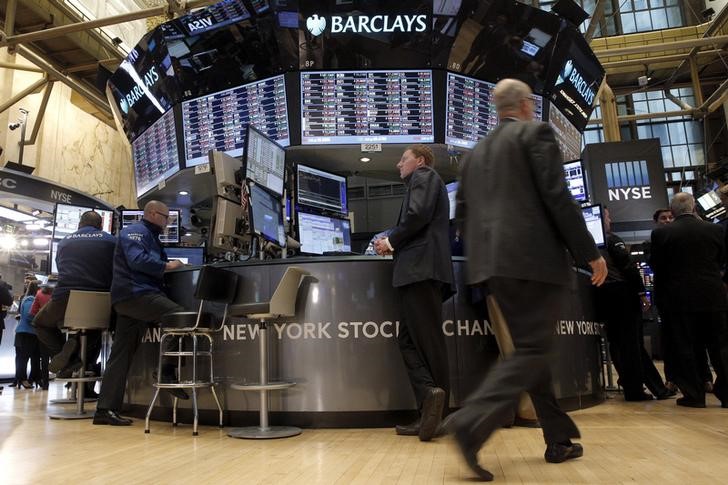By Geoffrey Smith
Investing.com -- The ruling Democratic Party is drafting plans to raise taxes on stock buybacks. Joe Biden calls Xi Jinping to take the heat out of U.S.-China tensions but the readout suggests little changed. U.S. stocks are set to open higher but are still on course for a losing week. U.S. producer price data for August are due, and Gazprom (MCX:GAZP) finally completes construction of the controversial Nord Stream 2 gas pipeline. Here's what you need to know in financial markets on Friday, 10th September.
1. Dems to tax buybacks
The Democratic Party is drafting legislation that would tax stock buybacks, as it broadens it quest for new revenue to fund its expansive spending policies.
The proposals, drafted by Sens. Sherrod Brown (Ohio) and Ron Wyden (Oregon), would impose a 2% excise on buybacks, which have become the preferred means of distribution to shareholders for many U.S. companies and accounted for 52% of all shareholder returns from S&P 500 companies last year.
The news comes as Democrat lawmakers squabble over how to allocate the $3.5 trillion that they intend to spend under bills now making their way through Congress. The buyback levy would reportedly raise only $172 billion over 10 years, according to The Wall Street Journal.
2, Biden, Xi call, talk past each other
U.S. President Joe Biden called his Chinese counterpart Xi Jinping for the first time in six months, in an attempt to take some of the heat out of a relationship that has failed to improve since the more combative Donald Trump left office.
Readouts from both sides of the call suggested no major changes in policy afoot.
The call comes only a couple of weeks after the U.S.’s chaotic exit from Afghanistan, which has created a power vacuum that China has indicated it may partially fill. China extended $31 million in aid to Afghanistan on Thursday and has said it will work with the Taliban. However, the aid earmarked doesn’t come close to replacing the financial backing of the International Monetary Fund and World Bank, both of which have suspended their work with the country.
A flurry of activity from the White House in the last few days has helped to shift the news agenda in recent days, with vaccine mandates for federal employees and a suit against Texas’ abortion law diverting attention away from central Asia.
3. Stocks set to open higher; PPI data eyed
U.S. stocks are set to open higher later, reversing Thursday’s losses but still on course for their first negative week in three.
By 6:20 AM ET, Dow Jones futures were up 176 points, or 0.5%, while S&P 500 futures were up 0.4% and Nasdaq 100 futures were up 0.3%.
Attention will be paid later to U.S. producer price inflation data at 8:30 AM ET, where a fresh multi-year high of 8.2% is expected.
Stocks likely to be in focus include American Outdoor Brands (NASDAQ:SWBI), after the company issued disappointing guidance late on Thursday. News of a legal challenge to New York City’s price cap is supporting the stock prices of food delivery firms such as Uber (NYSE:UBER) and DoorDash (NYSE:DASH) at the margins.
4. Gazprom completes Nord Stream 2, but gas prices keep rising
European natural gas prices eased a little after Russian gas giant Gazprom (LON:GAZPq) said it has completed construction of the Nord Stream 2 pipeline, which takes Russian gas under the Baltic Sea directly to Germany, the continent’s biggest market.
The news raised hopes that flows will be ramped up quickly, allowing European utilities to fill storage capacity ahead of the winter heating season.
U.K. Natural Gas prices have tripled this year due to lower supplies from Russia and a squeeze in demand from power stations as generation from renewables (notably wind) has fallen due to spells of high atmospheric pressure over Europe. They rose again on Friday morning by another 1.7%, as the near-term problems with supply outweighed the prospect of relief in a couple of months.
5. Oil gains as Gulf production problems continue
Crude oil prices rose another $1 a barrel as the problems in restoring output from the Gulf of Mexico after Hurricane Ida dragged on.
Royal Dutch Shell (LON:RDSa), the largest operator offshore in the region, declared force majeure on some of its contracts on Thursday, in a move that suggested it expects the West Delta-143 shallow water platform, which serves as a hub for various production pipelines, to stay affected for some time.
U.S. authorities estimate that just under 80% of the Gulf’s output remains offline, over a week after Ida struck. That means that Ida has already taken more barrels off the market this month than OPEC and its allies added to it.
By 6:30 AM ET, U.S. crude futures were up 1.7% at $69.27 a barrel, while Brent futures were up 1.7% at $72.63 a barrel. Baker Hughes’ rig count and the CFTC’s net speculative positioning data are due later.
